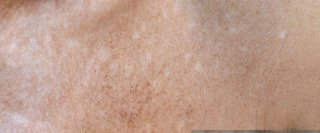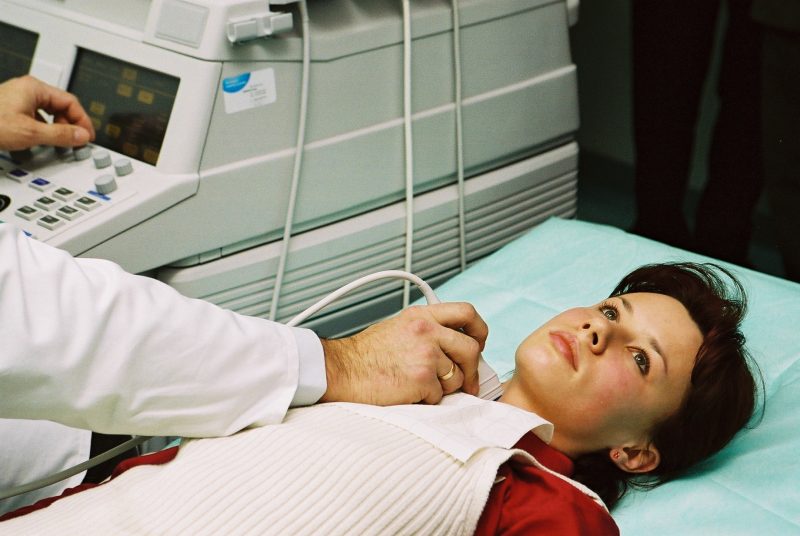Causes, Symptoms, And Treatment Of Eczema
Eczema, also known as atopic dermatitis, is a chronic inflammatory skin condition that affects millions of people worldwide. Characterized by red, itchy, and inflamed skin, eczema can be a frustrating and uncomfortable condition to live with. While eczema can affect individuals of all ages, it is most common in children, though many people experience it into adulthood. Understanding the symptoms, causes, triggers, and available treatments for eczema is crucial for managing the condition and improving quality of life. This comprehensive guide explores the various aspects of eczema, including its symptoms, causes, treatment options, and lifestyle modifications that can help control flare-ups.
Eczema
Eczema is a term that encompasses several different types of skin conditions, with atopic dermatitis being the most common form. The condition causes the skin to become inflamed, irritated, and often itchy. It typically appears as red patches of skin, which can sometimes develop into blisters, oozing, or crusting. The skin affected by eczema can also become thickened, dry, and scaly over time.
Eczema is often associated with other allergic conditions such as asthma and hay fever, and those with a family history of these conditions are more likely to develop eczema. While eczema is not contagious, it is a chronic condition that can go through cycles of flare-ups and periods of remission. The severity of eczema can vary from person to person, with some individuals experiencing mild symptoms and others dealing with more severe outbreaks that can significantly impact their daily lives.
Symptoms of eczema
The symptoms of eczema can vary depending on the type of eczema, the individual’s age, and the severity of the condition. The most common signs and symptoms of eczema include:
-
- Itching: Intense itching is one of the hallmark symptoms of eczema. The itching can be constant and often worsens at night, making it difficult to sleep.
- Red, inflamed skin: The skin affected by eczema usually appears red and irritated. This inflammation is due to an overactive immune response in the skin.
- Dry, scaly patches: The skin may become very dry, flaky, or scaly, especially in areas where the eczema is most prominent.
- Blisters and oozing: In more severe cases, eczema can cause blisters to form. These blisters can break open and ooze clear fluid, which can lead to crusting and scabbing.
- Thickened skin: Chronic scratching and inflammation can cause the skin to thicken, a condition known as lichenification.
- Cracked or bleeding skin: In some cases, the skin may crack or bleed, particularly in areas where the skin is dry or irritated.
Eczema can affect various parts of the body, though it is commonly seen on the face, behind the knees, inside the elbows, and on the hands and feet. The rash may also develop in more sensitive areas such as the groin or under the armpits.
Types of eczema
Eczema can manifest in several forms, each with its own set of characteristics and patterns of flare-ups. Some of the most common types of eczema include:
1) Atopic dermatitis: This is the most common form of eczema and is often associated with other allergic conditions such as asthma and hay fever. Atopic dermatitis usually appears in childhood, though it can develop at any age. It causes red, itchy patches on the skin and may affect the face, hands, feet, and the backs of the knees and elbows.
2) Contact dermatitis: This type of eczema occurs when the skin comes into contact with an irritant or allergen. The reaction can cause redness, itching, and swelling. There are two types of contact dermatitis: irritant contact dermatitis, which results from exposure to harsh chemicals or physical irritants, and allergic contact dermatitis, which is an allergic reaction to substances such as nickel, latex, or certain fragrances.
3) Dyshidrotic eczema: This type of eczema affects the hands and feet, causing small, fluid-filled blisters. It is often triggered by stress, allergens, or exposure to certain metals, such as nickel.
4) Seborrheic dermatitis: Seborrheic dermatitis primarily affects the scalp, face, and other areas with a high concentration of oil-producing glands. It is characterised by flaky, greasy scales that can be yellow or white and may be associated with dandruff or cradle cap in infants.
5) Nummular eczema: This type of eczema presents as circular or oval-shaped patches of red, itchy skin. It is more common in adults and often develops after an injury or infection to the skin.
6) Stasis dermatitis: Stasis dermatitis occurs in people with poor circulation, often in the lower legs. It is typically associated with varicose veins and can cause redness, swelling, and skin ulcers.
Causes and triggers of eczema
The exact cause of eczema is not fully understood, but it is believed to be related to a combination of genetic and environmental factors. People with eczema have an overactive immune system, which triggers inflammation in response to certain irritants or triggers. Some of the key factors that contribute to eczema include:
-
- Genetics: Eczema tends to run in families, and individuals with a family history of eczema, asthma, or hay fever are more likely to develop the condition.
- Immune system dysfunction: In people with eczema, the immune system overreacts to environmental stimuli, leading to inflammation in the skin.
- Skin barrier dysfunction: People with eczema often have a compromised skin barrier, which makes it harder for the skin to retain moisture and protect against irritants, allergens, and bacteria.
- Environmental triggers: Various environmental factors can trigger eczema flare-ups, including:
– Allergens: Pollen, dust mites, pet dander, and mold are common allergens that can exacerbate eczema.
– Irritants: Harsh chemicals, soaps, detergents, and fragrances can irritate the skin and trigger eczema flare-ups.
– Weather: Extremes in temperature, humidity, or dry conditions can make eczema worse. Cold weather tends to dry out the skin, while hot weather and sweating can cause flare-ups.
– Stress: Emotional stress is a known trigger for eczema flare-ups, as it can worsen inflammation and make the skin more sensitive.
– Infections: Bacterial, viral, or fungal infections can lead to eczema flare-ups, especially when the skin is already inflamed or compromised.
Diagnosis of eczema
Diagnosing eczema typically involves a physical examination of the skin. A healthcare provider will assess the appearance and location of the skin lesions and may inquire about the individual’s medical history and family history of allergies or skin conditions. In some cases, a skin biopsy or allergy tests may be recommended to rule out other conditions or identify specific allergens that could be triggering eczema.
Since eczema shares similar symptoms with other skin conditions, such as psoriasis or fungal infections, it is important for a healthcare provider to accurately diagnose the condition to ensure the appropriate treatment is prescribed.
Treatment options for eczema
While there is no cure for eczema, several treatments can help control flare-ups, manage symptoms, and reduce the frequency of outbreaks. Treatment plans typically include a combination of self-care measures, topical treatments, and sometimes systemic medications. The main goal is to reduce inflammation, relieve itching, and restore the skin’s barrier function.
1) Topical treatments
The most common treatment for eczema involves the use of topical medications, which are applied directly to the skin. These may include:
– Corticosteroids: Topical steroids are the most commonly prescribed treatment for eczema. They help reduce inflammation and itching. However, they should be used cautiously and under a doctor’s guidance, as prolonged use of steroids can lead to thinning of the skin.
– Topical Calcineurin inhibitors: These are non-steroidal medications that can help reduce inflammation and itching. Examples include tacrolimus and pimecrolimus.
– Emollients and moisturisers: Regular moisturizing is essential for managing eczema. Emollients help keep the skin hydrated and strengthen the skin’s barrier, reducing the risk of flare-ups.
– Coal tar: Coal tar can help reduce inflammation and scaling, especially in cases of chronic eczema.
2) Phototherapy
For moderate to severe eczema that does not respond to topical treatments, phototherapy may be recommended. This treatment involves exposing the skin to ultraviolet light under medical supervision. UVB light helps slow down the skin’s overactive immune response, reducing inflammation and itching.
3) Systemic medications
In cases where eczema is severe or widespread, systemic medications may be needed. These include:
– Oral corticosteroids: Short-term use of oral corticosteroids may be prescribed for flare-ups that cannot be controlled with topical treatments.
– Immunosuppressive medications: Drugs such as methotrexate, cyclosporine, and azathioprine can suppress the immune system to reduce inflammation and control symptoms.
– Biologics: Biologic therapies, such as dupilumab, target specific immune system proteins and are used for moderate to severe eczema that is not controlled by other treatments.
4) Lifestyle modifications and home remedies
– Avoiding triggers: Identifying and avoiding eczema triggers such as allergens, irritants, or stress is key to managing the condition.
– Bathing: Taking lukewarm baths with oatmeal or Epsom salts can help soothe itching and reduce inflammation. Avoid hot showers, as they can dry out the skin.
– Wearing soft, breathable fabrics: Choose clothing made of soft, breathable materials such as cotton to minimize skin irritation.
– Managing stress: Since stress can worsen eczema, stress-reduction techniques such as yoga, meditation, or deep breathing exercises can be beneficial.
Eczema and mental health
Living with eczema can have a significant impact on mental health. The constant itching, visible skin lesions, and discomfort can lead to feelings of self-consciousness, anxiety, and depression. People with eczema may also struggle with sleep disturbances due to nighttime itching. It’s important for individuals with eczema to seek support from healthcare providers and mental health professionals to manage the emotional challenges of living with a chronic skin condition.
Wrapping up
Eczema is a chronic, often frustrating skin condition that requires ongoing management. While there is no cure, various treatments and lifestyle modifications can help individuals control flare-ups, reduce symptoms, and improve their quality of life. With a combination of effective treatments, a tailored skincare routine, and strategies to avoid triggers, people with eczema can manage their condition and enjoy healthier, more comfortable skin. If you suspect you have eczema or are struggling with flare-ups, it’s important to consult with a healthcare provider to develop a comprehensive treatment plan that meets your needs.



